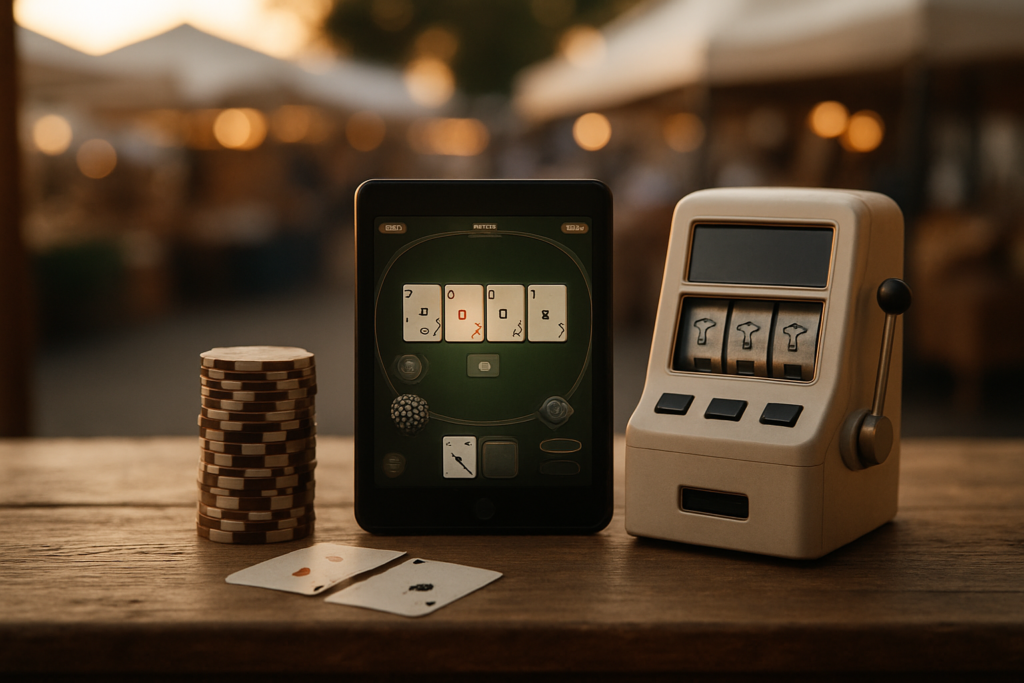Real Time Personalization is the New Standard
Online casinos are no longer just flashy lobbies with hundreds of games they’re becoming intelligent systems that learn how you play, what you like, and when you’re likely to click “spin” or “deal” again. AI recommendation engines now steer gameplay much like Netflix curates your next binge. Based on betting patterns, session history, and even reaction time, casinos fine tune which games sit front and center when you log in.
Interface design is getting smarter, too. Players who favor poker get layouts optimized for quick decision making. Slot fans see bonus trackers and feature previews baked into the UI. The goal is simple: remove friction and keep sessions flowing with as little cognitive noise as possible.
Then there’s the evolution of promotions. Instead of blasting every player with the same recycled cashback banner, the system now analyzes behavior and tailors offers based on what each user actually responds to. Some might get free spins during their lowest activity windows; others see jackpot notifications at peak momentum.
Personalization is no longer a novelty it’s infrastructure. The more responsive an experience feels, the more players stick around. And the casinos that nail this aren’t just giving people a better UI they’re building loyalty at code level.
Blockchain’s Role in Trust and Transparency
Trust is the make or break factor in online gambling, and blockchain is tipping the scales. Crypto wallets give users direct control of their funds no middlemen, no waiting days for withdrawals, no hidden fees quietly skimming off the top. Transactions happen fast, often instantly, and users can move money across borders without running into banking red tape.
But it’s not just about speed and access. Blockchain audits are making a dent in long standing trust issues. Every transaction, bet, and payout sits on a public ledger. It’s open. Unalterable. That’s huge for transparency and for players who’ve had enough of vague house rules and shadowy accounting.
Add in “provably fair” gaming, and suddenly users can verify that every spin, roll, or card draw was generated fairly. Algorithms share their seeds and outcomes, and the math stays open source. So, what used to be blind trust isn’t blind anymore.
Taken together, these features remove a lot of the doubt. The platforms embracing blockchain aren’t just pushing trendy tech they’re building systems players can actually believe in. That changes everything.
Smart Contracts Powering Payouts
For players, waiting days for a payout is officially outdated. Smart contracts self executing code on the blockchain are cutting the fat from settlement processes. Winnings hit wallets instantly once the terms of the game are met. No ops desk, no middle layer. Just clear results and immediate payouts.
This shift is also dialing down disputes. With rules encoded upfront and transactions recorded transparently, there’s way less friction when losses sting or wins are questioned. It’s all there in the ledger.
More than speed and clarity, smart contracts are enabling entirely new gameplay mechanics. Think micro wagers, pay per move bets, or split second side pots stuff that used to be too clunky or expensive to manage. Now, it happens automatically, opening up creative, fast paced formats that attract a new breed of bettor. Bottom line: faster money and fewer headaches. Players like that equation.
Fully Immersive Casino Experiences Are Arriving

VR casinos aren’t just a sci fi concept anymore they’re functional, sharp, and gaining real traction. 2026 marks a shift from flashy gimmicks to true sensory immersion. We’re talking 3D spatial audio that reacts as you move, eye tracking that refines user perspective in real time, and dealer avatars that feel more like real people than NPCs.
It’s not all locked into bulky headsets, either. Cross device integration means you can start a hand on mobile during lunch, then plug into VR at home and pick up where you left off. It’s about seamless presence across formats not choosing between them.
But the real breakthrough? These experiences are no longer driven by visual overload for the sake of hype. They’re built to feel fluid, focused, and social. Instead of overwhelming players, these casinos pull them into environments that feel responsive, intuitive, and grounded in realism.
Want a closer look at what’s coming? Explore more on the VR casino future.
Multiplayer and Social Gambling
Online gambling is moving from solo streaks to shared moments. Players are no longer just spinning reels or drawing cards in silence they’re forming squads, co strategizing, and building rapport in real time. Private tables now let friends or high rollers play together in controlled environments, while live chat adds a layer of banter that was missing for years. It’s poker night, minus the commute.
Streaming is also bleeding into casino sessions. Twitch style broadcasts with charismatic hosts and running commentary aren’t just hype they’re pulling in viewership and pumping up community engagement. For platforms, it’s not just about gameplay anymore. It’s about content.
Then come virtual lounges always on lobbies where players can talk strategy, share wins, and prep for the next round. These aren’t gimmicks they’re sticky. The more connected players feel, the more often they come back.
Social mechanics aren’t optional anymore. They’re part of what makes an online casino feel alive, not just operational.
Regulatory Tech Keeps Operators in Check
Behind the scenes, online casinos are getting smarter and stricter. AI is doing more than recommending games or optimizing ad spend. It’s now central to catching cheaters and detecting fraud in real time. Advanced engines are analyzing player moves, transaction patterns, and device data to flag suspicious behavior before it becomes a problem. No more relying solely on delayed manual reviews or static rules.
But the tech doesn’t stop at preventing fraud. Behavioral analytics are stepping up to identify early signs of problem gambling. Sudden gameplay changes, erratic deposits, or long sessions without breaks trigger alerts not bans, but nudges, offering tools or pauses. The goal: protect players without crushing the experience.
On the compliance side, operators face growing regulation as more regions open up. Automation tools now track jurisdiction specific requirements, from ID verification to data protections. Instead of scrambling to meet audits, leading platforms are using software that keeps them aligned 24/7. It’s quiet, unflashy work but critical. In 2026, trust is built backstage as much as on the front end.
Preparing for 2027 and Beyond
Online casino operators aren’t just riding the wave they’re building the future brick by digital brick. The smartest ones are investing in modular tech stacks. Why? Flexibility. Instead of being tied to bulky, outdated systems, they can plug in new tools as trends shift whether it’s upgrading payment rails, integrating a new compliance engine, or scaling for VR.
But infrastructure is just part of the story. The experience itself is about to take a leap. Expect to see wearable tech that tracks biometrics, games that respond to emotional cues, and AI powered dealers that adapt to each player’s style. These aren’t sci fi fantasies they’re the next wave of user engagement. The more the system knows about the player, the more immersive it becomes.
And that brings us to the big gray zone: the line between gaming and gambling is fading. Casual games are being built with casino economics behind the scenes. Gambling elements are sneaking into non casino platforms. Governments, users, and developers will be playing catch up as this convergence accelerates.
To see where fully immersive play is headed, check out how VR is shaping this transformation.

 Jennifersa Recinosolars, the founder of Bounce Casino Ball, has built a platform that provides essential information for casino enthusiasts. With a strong passion for gaming, she created the site to offer updates on live casino games, promotions, and crypto betting. Jennifersa aims to help players stay ahead by delivering insights into the latest market trends and strategies, ensuring they have the resources to enhance their casino experience. Through her leadership, Bounce Casino Ball continues to be a trusted source for both traditional and digital casino enthusiasts.
Jennifersa Recinosolars, the founder of Bounce Casino Ball, has built a platform that provides essential information for casino enthusiasts. With a strong passion for gaming, she created the site to offer updates on live casino games, promotions, and crypto betting. Jennifersa aims to help players stay ahead by delivering insights into the latest market trends and strategies, ensuring they have the resources to enhance their casino experience. Through her leadership, Bounce Casino Ball continues to be a trusted source for both traditional and digital casino enthusiasts.